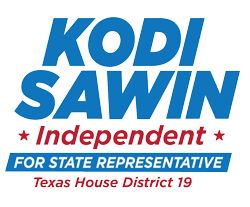Principles To Policies
INDEPENDENT TEXANS LEAD THE WAY
PRINCIPLES
To stay focused on the issues of importance to this district, I’ve developed guiding principles to help ensure we stay grounded in reality and rooted in our community. Make no mistake, this is tough in a hyper-partisan environment, but when I stick to my principles, I know I have more meaningful conversations with people of all political stripes.
No national partisan issues or federal issues—I believe in “stay-in-your-lane” politics focused on local and regional policies of consequence. If, as a State Representative, I don’t have authority over an issue, I will refrain from opining about it. Too often, elected officials at the state, county, and municipal levels use national partisan issues to advance their own political ambitions or hide their own ineffectiveness.
Avoid partisan talking points—Again, easier said than done. Most political rhetoric these days is used to motivate like-minded people, not persuade people who think differently. It is often designed to give the appearance of division where none exists—and it is highly effective.
Worse, this type of divisive language comes from national campaigns that exploit consumer data to mold messages that conform to particular partisan or ideological interests.
So, let’s aim to wrangle back control of how we talk about policy issues and show others a way forward.
If I ask you to give me an example of how an issue impacts your daily life, I’m often trying to remove some distant political consultant from OUR conversation. I want to meet you where you stand.
No Talking Bad About Your Neighbor—enough said.
The work we put into collecting petition signatures while using the principles outlined above informed and shaped a set of policy priorities. Policy priorities based on your voice and my ears.
POLICIES
My policy priorities are based on what I learned from voters in House District 19. And while there are many policy issues to talk about and work through, here’s where we begin:
Natural resources—Hands down, water and land use are the top issues for voters in House District 19, across party and ideological lines.
-
On water
- Support for groundwater districts—no more unfunded mandates and provide funds for mandates that exist
- Outline management best practices at river authorities to better serve a host of competing interests within any given river basin—from agriculture to municipal demand to ancillary localized economies
- Shore up the new Texas Water Fund
- Increase the dollar amounts available throughout the state to better match actual needs—$1 billion is a drop in the bucket of what’s needed
- Ensure a stable revenue source for future needs—state leadership must be honest about the real-world costs of Texas’ constant population climb
- Place wastewater management and treatment as a priority to shore up supply
- Implement a statewide water utility evaluation and stress test to better understand the true scope of Texas’ water infrastructure rehabilitation and development needs
-
On local control
- The Texas legislature continues on a warpath to strip local communities of local control and place the fate of local communities in the hands of a few at the state level, as evidenced by numerous bills during the last legislative session.
- Incentivize homebuilders and developers to meet the values and history of an area while providing small but rapidly growing communities with the tools and resources to manage the change in circumstance
- Reverse or revise legislation that stripped local municipalities and counties of their right to self-determination
- Increase public participation in issues that come before the Texas Commission on Environmental Quality, including, but not limited to, aggregate mining operations and wastewater permits
- The Texas legislature continues on a warpath to strip local communities of local control and place the fate of local communities in the hands of a few at the state level, as evidenced by numerous bills during the last legislative session.
-
On why we can't fix our water and land issues
- Profound frustration with partisan politics exists uniformly and universally on both sides of the aisle, even when one’s “own side” is clearly winning. This frustration extends to politicians who care more about party loyalty and personal gain than addressing our day-to-day lives and bringing us together for the common good. There is a surprising desire to examine election laws that make the problem worse, not better.
- Open state and local primaries to all candidates to compete at the same time and under the same rules—for instance, the state of Texas goes to great lengths to keep Independent candidates off the ballot, making them unable to compete on a level playing field
- Ensure that all candidates are qualified to run in a district or precinct—no longer allow the Republican or Democratic parties to determine the eligibility of candidates without verification from the Secretary of State's office. Too many politicians simply don't meet the residency requirements as defined in the Texas Constitution—and that lack of connection to the voters in an area results in poor decision-making
- Profound frustration with partisan politics exists uniformly and universally on both sides of the aisle, even when one’s “own side” is clearly winning. This frustration extends to politicians who care more about party loyalty and personal gain than addressing our day-to-day lives and bringing us together for the common good. There is a surprising desire to examine election laws that make the problem worse, not better.
The Texas Hill Country is a crossroads of change.
The question for us: Do we keep doing the same thing with the same results—electing some variation of the same person? Or do we make a change?
